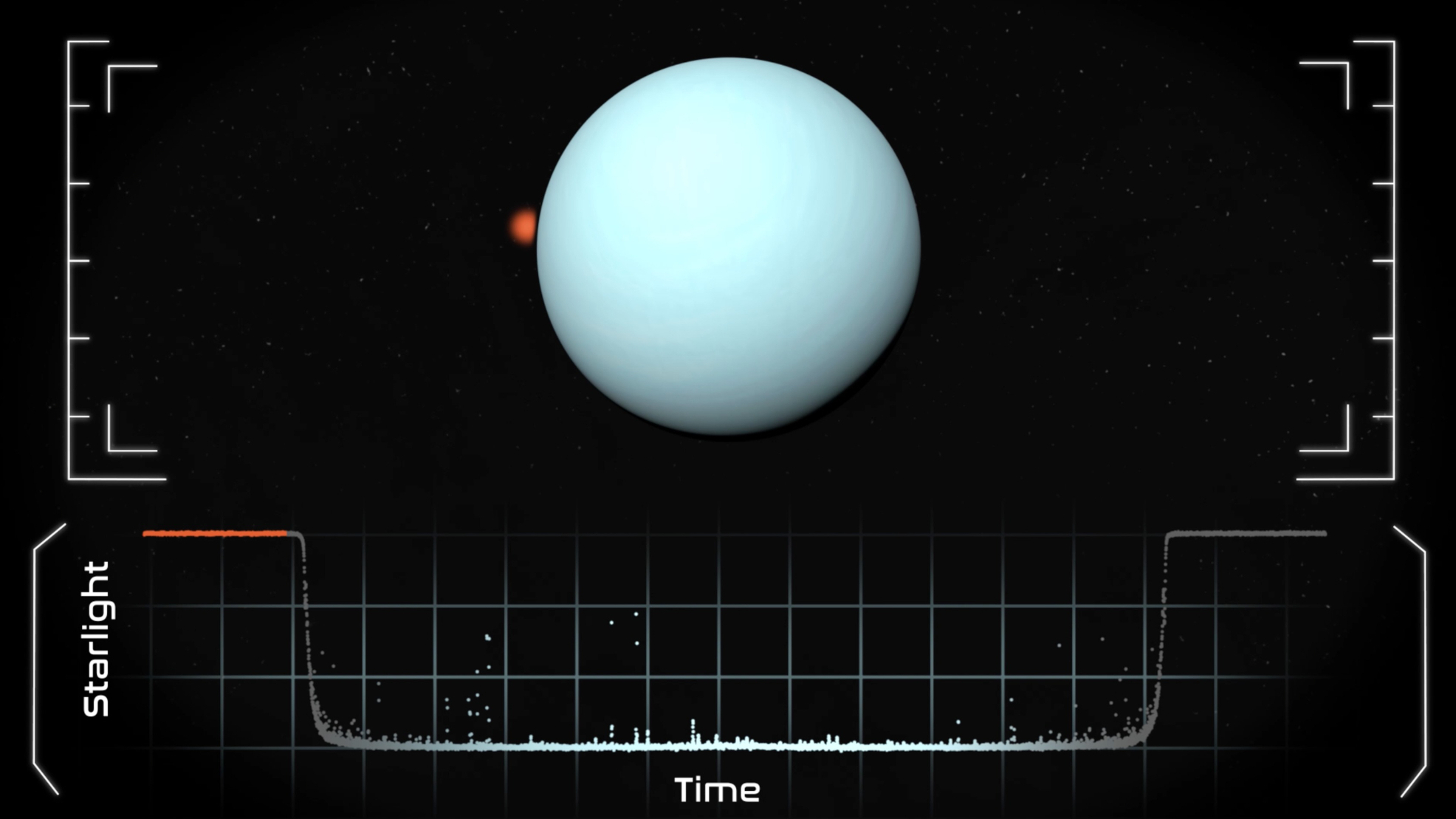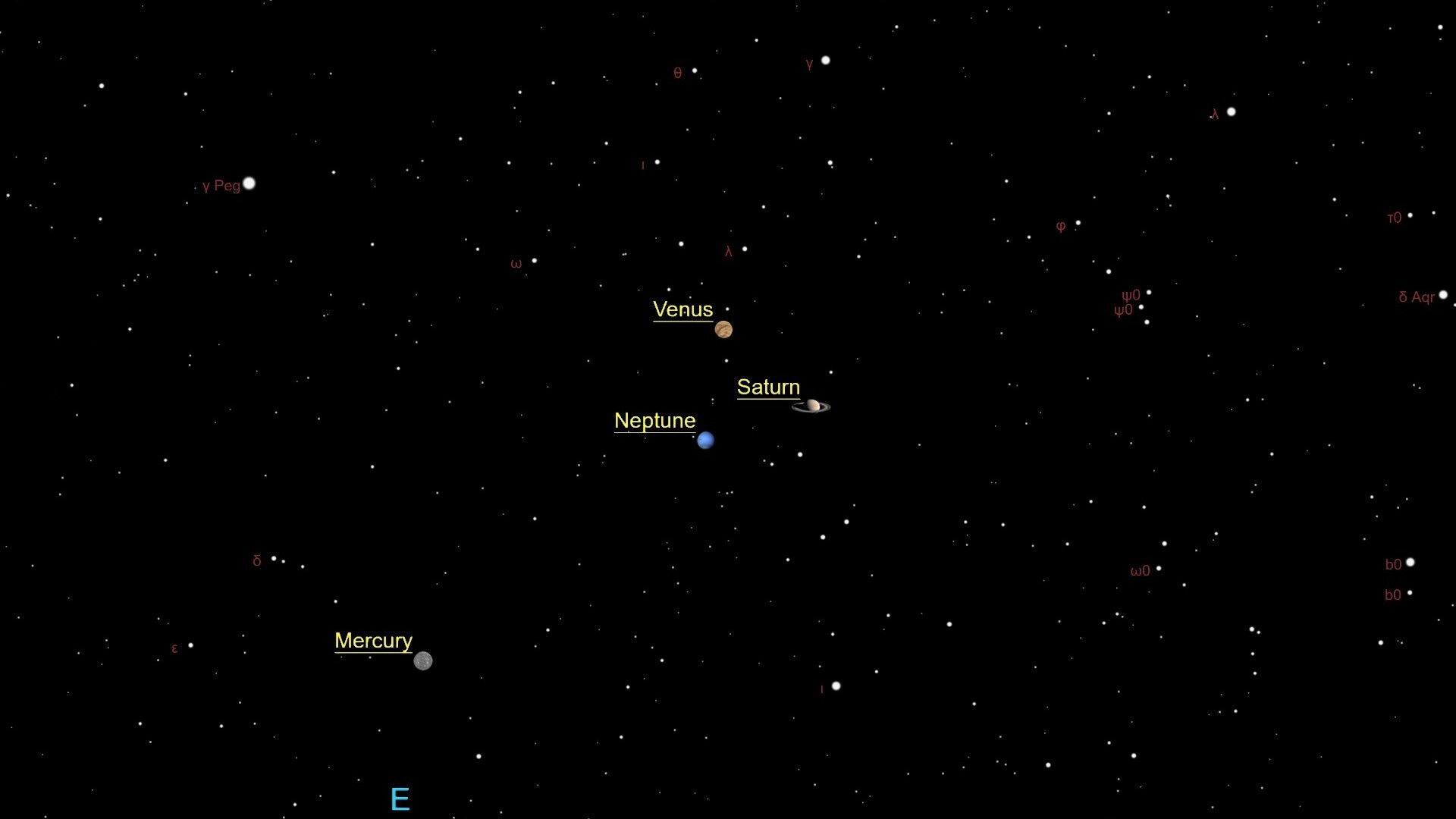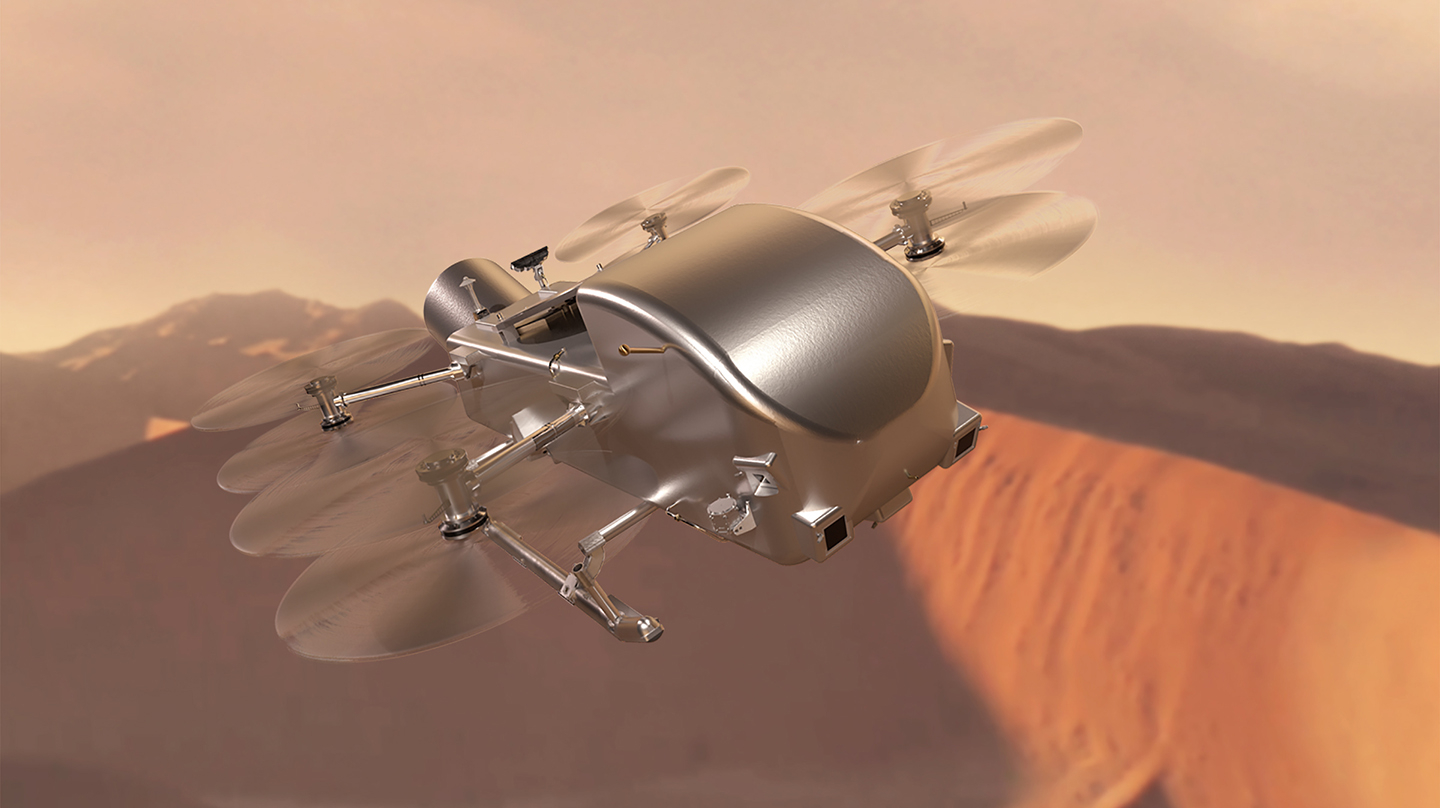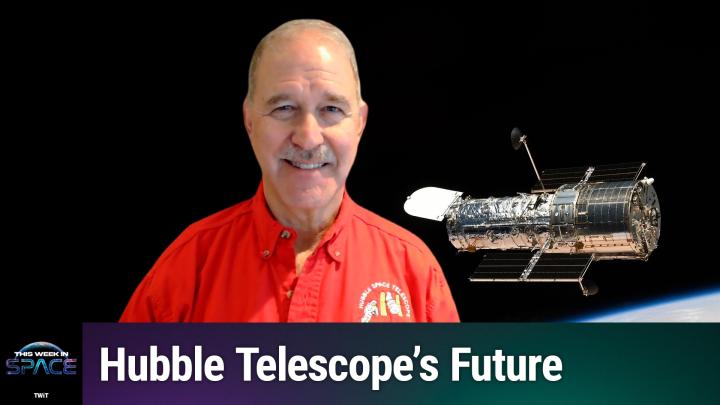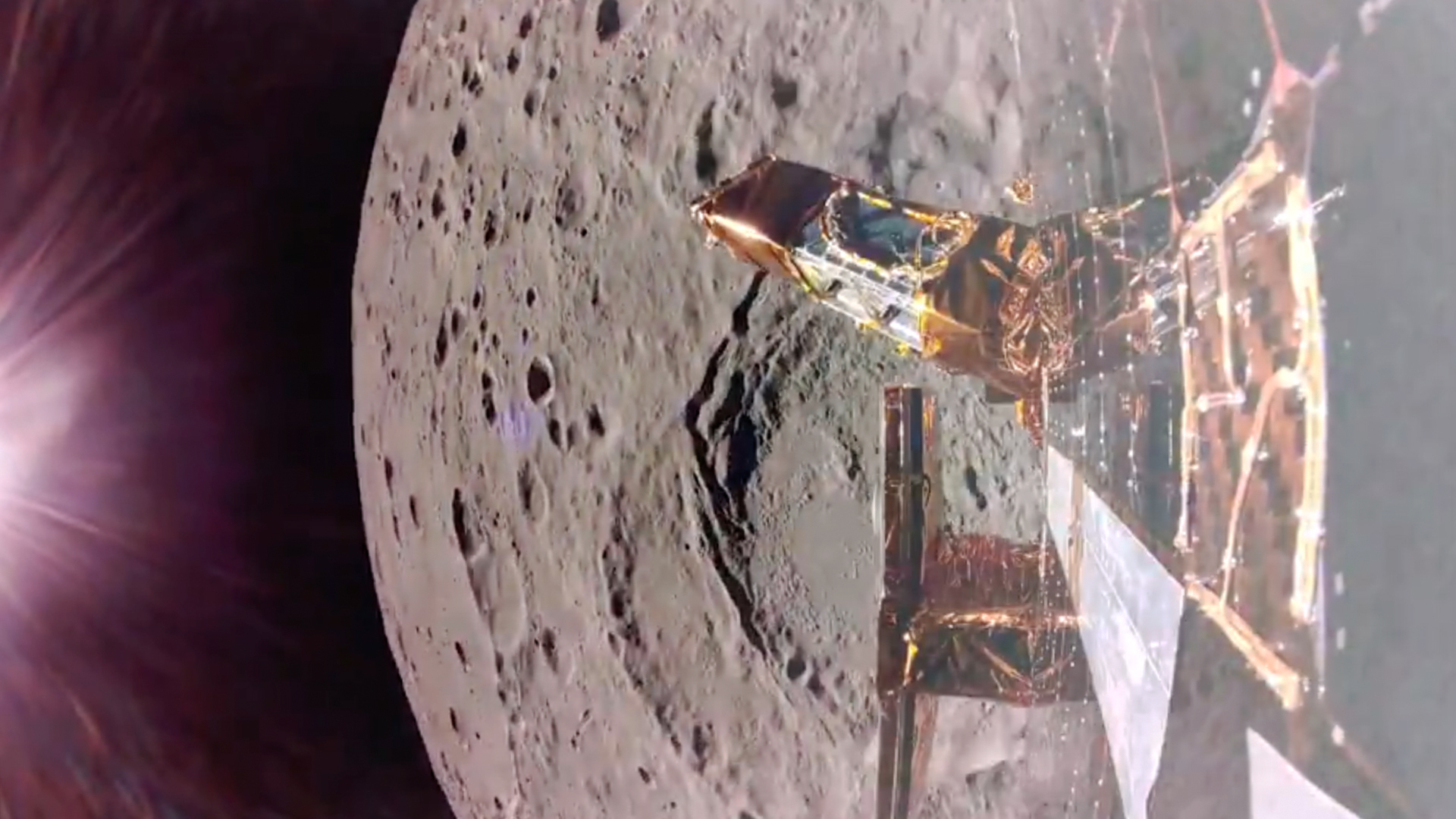Dazzling Auroras Dance on the Southern Horizon in Astronaut's Photo
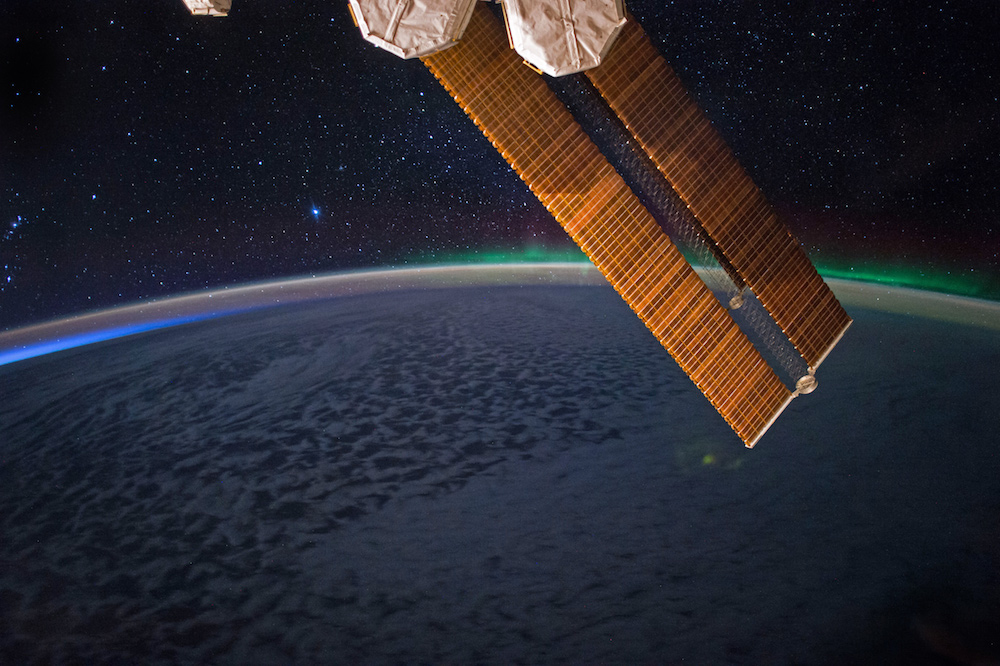
The southern lights appear to dance on the horizon off the southern coast of Australia in a stunning new photo taken by an astronaut aboard the International Space Station.
The eye-catching image was taken on June 19, according to NASA's Earth Observatory, and the shot captures a gorgeous cosmic interplay: a curved sliver of blue dawn light and the more diffuse green glow of the southern lights (also called the aurora australis), sliced through by one of the space station's solar-panel-covered wings.
As is the case for its northerly counterpart, the aurora borealis (or northern lights), the otherworldly glow of the aurora australis is caused by collisions of particles high up in the atmosphere. Though most of these particles, which have been blasted off from the sun, are deflected by Earth's magnetic field, some enter the South Pole. Once there, the particles smash into atmospheric gas, injecting the latter with a burst of extra energy. Then, the gas releases this extra energy in the form of light. [Aurora Photos: See Breathtaking Views of the Northern Lights]
But not all auroras glow green. Two factors determine their hue: the type of atmospheric gas that is smashed into, and the altitude at which these collisions occur. The aurora captured here is a result of oxygen gas releasing light 60 to 250 miles (100 to 400 kilometers) up, according to NASA. Nitrogen struck at higher altitudes makes the sky blaze red, while lower down, this results in a breathtaking blue-purple haze, as was the case in New Zealand skies in 2015, reported Yahoo News.
But although they represent a spectacular scientific phenomenon, these sky spectacles have also inspired mystical explanations. For example, the Maori people of New Zealand's North Island believe the red aurora australis is fire lit by spirits — a message that they're returning home, ABC science reported in 2013.
Original article on Live Science.
Get the Space.com Newsletter
Breaking space news, the latest updates on rocket launches, skywatching events and more!
Join our Space Forums to keep talking space on the latest missions, night sky and more! And if you have a news tip, correction or comment, let us know at: community@space.com.

